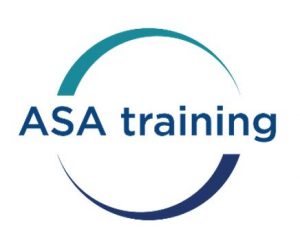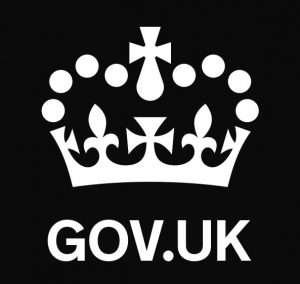Standards of communication are very important to ASA. Communication should be timely, relevant, appropriate and respectful; we believe it should also be straightforward and honest. This policy sets out the expectation of communications standards for all our employees. Any breach of this policy will be viewed as misconduct and may result in disciplinary action being taken against you including, in serious cases, dismissal without notice or pay in lieu of notice.
Email Policy
Our email facility is intended to provide effective communication within the organisation, and externally with clients and customers, on business matters.
Please bear our values in mind when communicating by email. Emails should always be courteous and respectful. Always review your emails before sending, particularly if you feel aggrieved about something. In general, if two emails do not resolve an issue it is better to pick up the phone and then confirm decisions made or actions agreed in writing.
The following rules for email use must be adhered to:
- Please be aware that most individuals expect a prompt response to an email. You must check emails daily or set the Automatic Replies (out of office) facility when you are absent from work or have no access to email.
- Emails must be written in a business format with correct use of capital letters and punctuation. Emails should be checked thoroughly before sending (including
that they have been properly addressed), using the same care you would give to a
formal letter on the Company’s letterhead.
- Messages must be sent only to the person / people that are required to take action
and cc’s only sent to the person / people that need to be aware.
- Automatic Replies (out of office) message must be used during periods of holiday or sick leave, giving details of who to contact and how and when you are returning to work.
- You must not impersonate any other person when using email.
- Use of ASA emails for reasons other than work is not permitted at any time.
- Do not email any material that could potentially be defamatory, for example, containing untrue, malicious or otherwise inappropriate statements about our students, employers, competitors or other employees.
- Do not send ‘fun’ or ‘flame’ emails; what may seem harmless fun to some can be offensive to others and may be regarded as harassment. If you receive an email which you consider offensive, you should raise the issue with your Manager. There are a number of laws that prohibit discrimination and harassment on the grounds of sex, race, colour, nationality, ethnic or national origin, disability, age, marital or civil partnership status, sexual orientation, gender re-assignment, religion or belief.
- Do not respond to, or forward on, chain letter-type emails.
- Do not make any statements via email which intentionally or unintentionally create a binding contract or make negligent statements. Be aware that legally binding contracts can be formed by email.
- Do not initiate or forward emails that contain obscene, pornographic and/or offensive material.
- Never import unknown messages, files or attachments onto your system without authorisation.
Please remember that we have the authority and ability to intercept, read and print out all
internal and external (incoming and outgoing) emails, including those marked ‘personal’. Communications of a sensitive or confidential nature should not be sent by ASA email because they are not guaranteed to be private.
You agree that we may take all actions necessary to ensure our Email Policy is adhered to. We reserve the right to monitor and/or open any email on the company systems.
Microsoft Teams
Teams is a unified communications and collaboration tool that allows collaborative internal and external communication, regardless of location. It provides a common workspace to share information and has baked-in features like document sharing, personal messaging, team and group chats, etc.
Throughout 2020 as a result of the pandemic ASA saw an increase in the use of Teams and this has quickly become a preferred use of communication when working from home for all. It is important to remember that ASA expect the same conduct when using Teams as with any others forms of communication with ASA and for all communication to be respectful and courteous at all times. When attending meetings via Teams to ensure that you are punctual and that unless stated otherwise, cameras are always turned on. If a meeting is to be recorded, for training purposes for example, please ensure that all attendees are aware this is the case beforehand and the reason why the session is being recorded.
Mobile Phone
It may be that the best way to communicate on a particular issue is by phone; if so please ensure you adhere to the following points:
- Calls must always be answered in a business-like professional manner.
- Mobile phones must always be switched off/on silent during business meetings.
- A standard voicemail message must be set up by the user of the mobile phone; “name, company name, job title, unable to take call…, please leave a message” etc. Please ensure you listen to the voicemail before finalising to ensure it meets these criteria and doesn’t contain loud background noise.
- Out of office voicemail must be set up for periods of holiday or sickness, detailing who callers should contact and their number, during the absence.
- When leaving voicemail messages these should be brief, providing the recipient with the name and company of the caller, a brief account of the nature of the call and what number to return the call on.
The following rules for phone use must be adhered to:
- Mobile phones must never be used whilst driving.
- Mobile phones are for business use and incidental private use only. ASA will reclaim the costs when phones are used for private use.
- ASA phones are never to be used outside of the UK.
- Use of your business mobile phones for calling premium rate line calls or quizzes or 0800, 09 and 118 numbers, which are not free from ASA mobiles, etc. is strictly prohibited. ASA will reclaim the costs when phones are used for these calls.
- Use of the “Call Back” facility is strictly prohibited.
- Should you require a telephone number, do not call directory inquiries; please contact the office who will obtain the number on your behalf.
The phone bills are closely monitored on a monthly basis and any overspend will be investigated and addressed with the employee concerned; where necessary it will result in a deduction from salary to pay back monies owed.
Student Communication
We take communication with students very seriously at ASA. It is important that students’ privacy is safeguarded and that you are never in a position where an allegation could be made against you that we can’t defend.
It is understandable that you will form a working relationship with a student when you are supporting them to achieve a qualification. However, any communication must relate to the qualification and career progression and be managed by you as the professional.
- Do not email or text students outside of reasonable hours, i.e. late at night or early in the morning, unless they are working on shift.
- Never send a text, call or instant message a student from your personal phone.
- Even if the communication is regarding the student’s welfare, maintain a professional
approach at all times and only use ASA equipment.
- Be mindful that if someone makes an allegation against you regarding a communication from your personal phone, it will be impossible for ASA to defend you. Therefore, you must never communicate with a student from your personal phone.
- If you receive an inappropriate or personal email or text from a student to either your personal or work phone you should discuss it with your manager, and not respond.
Never arrange to meet a student in a private house or at their home – all visits must take place at the workplace or if necessary in a public place.
Think about how you communicate with every student you meet; consider if any of your comments could be misconstrued.
One File
- Only your ASA email address must be registered on One File.
Land-line Phone
- Calls must always be answered in a business-like professional manner.
- Detailed messages must be taken, including caller name, phone number, company that they are calling from and a brief message.
- A standard message explaining office hours and how to leave a message should be left on the answer-phone at all company premises; the answer-phone must be switched on at all times when the office is unmanned.
Letters
Company headed paper must be used at all times when sending letters. Please request from Head Office if required.







